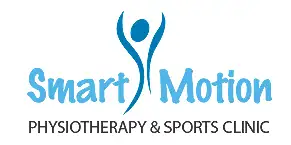Non-Invasive Shockwave Therapy Treatment in Surrey
Shockwave Therapy: Shockwave therapy treatment in Surrey is a multidisciplinary device used in orthopaedics, physiotherapy, sports medicine, urology and veterinary medicine. Its main assets are fast pain relief and mobility restoration. Together with being a non-surgical therapy with no need for painkillers makes it an ideal therapy to speed up recovery and cure various indications causing acute or chronic pain.
Non-Invasive Shockwave Therapy Treatment in Surrey
Most Importantly Shockwave therapy treatment in Surrey provides physiotherapists with an additional option for treating recalcitrant, chronic tendinopathy cases. However In some tendon disorders, standard means of treatment are ineffective, and having the option of shockwave therapy treatment gives physiotherapists another another tool in their arsenal of therapeutic options.
Shockwave therapy best suits people with chronic tendinopathies (commonly referred to as tendinitis) that have not responded to other forms of treatment. These include: tennis elbow, achilles tendinitis, rotator cuff tendinitis, plantar fasciitis, jumpers knee, and calcific tendinitis of the shoulder. These could be caused by sports, overuse, or repetitive strain.
The physiotherapist will assess you at your first visit to confirm that you are an appropriate candidate for shockwave therapy. The physio will educate you about your condition and guide you on what you can do in conjunction with treatment, such as modifying activities, performing specific exercises, and assessing other contributing issues like posture, and tightness or weakness of other muscle groups.
Shockwave therapy treatment in Surrey is usually done once a week for 3-6 weeks, depending on results. The treatment itself can cause mild discomfort, but it only last 4-5 minutes, and the intensity can be adjusted to keep it comfortable.
Affordable Shockwave Therapy In Surrey
Since the mid-1990s, low-energy Shock Wave Therapy has been available in Canada, but it has only lately become popular.
Shock Wave Therapy is a treatment that encourages the body’s own healing mechanisms to kick in. Another benefit of Shock Wave Therapy is the reduction of pain by directly affecting the nerve terminals in the area being treated. Understanding the differences between low energy and high energy Shock Wave Therapy is critical when determining whether or not you are a good candidate for Shock Wave Therapy and which type of Shock Wave Therapy will be most effective in treating your disease.
“Real” shockwaves occur when high-intensity, short-duration, high-energy pulses (5-100MPa) break the sound barrier.
Our high-intensity technique allows us to focus the shockwave directly on the afflicted tissue, resulting in many effects:
Mechanical pressure and tension forces on the tissue enhance cell membrane permeability, increasing microscopic circulation and metabolism within the treated area.. This aids in the recovery process and has the potential to dissolve calcific deposits.
A “cavitation bubble” of small, empty cavities forms behind a pressure front as a result of the pressure front itself. The collapse of the bubbles mechanically affects the treated tissue. This force can break down calcified deposits.
Stimulation of osteoblasts by shockwaves promotes bone repair and formation of new bone.
Shockwaves activate fibroblasts, which are the cells that repair connective tissue, such as tendons, by stimulating their growth.
Reduces pain in two ways. Overstimulating local nerve endings with numerous stimuli achieves short-term pain relief by reducing their activity. By stimulating local nerves to adjust their response to pain, the gate-control mechanism allows patients to experience a more sustained decrease in their level of discomfort.

Benefits
- New Blood Vessel Formation
- Reversal of Chronic Inflammation
- Stimulation of Collagen Production
- Dissolution of Calcified Fibroblasts
- Dispersion of Pain Mediator
- Release of Trigger Points

